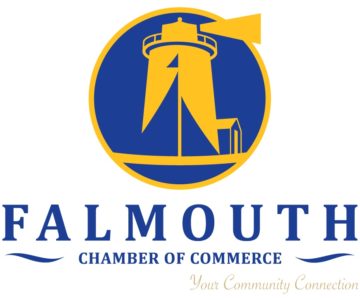The McGraw Center for Adaptive Sports will hold a Grand Opening on June 17 from 11 a.m. to 3 p.m. Learn more at spauldingrehab.org/mcgraw.
By Joy Jordan
The great outdoors calls to us, inviting us to explore and enjoy nature. However, for those with concerns about access, there can be many obstacles to getting out there and making the most of our natural surroundings.
Thanks to generous donors and the innovative team at Spaulding Rehabilitation Hospital Cape Cod, there are more options than ever for those who may have previously enjoyed limited access, including a special adaptive sports center at Nickerson State Park in Brewster. The McGraw Center for Adaptive Sports is a first-of-its-kind collaboration between Spaulding Rehabilitation Network’s Adaptive Sports Centers and the Department of Conservation and Recreation in Massachusetts. The collaboration establishes the center as a resource for residents and a vacation destination for increasingly mobile and connected adaptive sports enthusiasts.
Al Etre of Chatham was an avid cyclist who did the Pan Mass Challenge three times with his sons. Then he sustained an incomplete spinal cord injury. Etre says that the Spaulding program helped him get over barriers, assess goals, and reach those goals.
“It was a good thing for me to go, because it got me over the hump,” says Etre. “You get depressed because you’re frustrated that you can’t do what you used to, but they showed me a new way to do it.”
The ability to get out and enjoy activities that he had participated in before his injury was a game-changer for Etre.
“It felt good to be outside, to have wind in my face,” says Etre. “I missed that. Riding down the trail, seeing cranberry bogs, seeing seals – it was an epiphany. I used to do that ride from my house after work and would see those sights on the Rail Trail. It was a great experience to see those sights again.”
Spaulding Cape Cod’s adaptive sports programs have been steadily growing since the hospital offered its first adaptive golf clinic in 2001 in collaboration with the National Amputee Golf Association. Today’s roster of programs includes cycling, kayaking, golf, tennis, basketball, and curling on the Cape, plus skiing, rock wall climbing, sled hockey and other off-Cape activities.
The Spaulding Adaptive Sports Center team develops new programs to respond to the interests of community members and to ensure a menu of activities that can meet the needs of persons of all ages and abilities without duplicating programming offered by other agencies.
Spaulding’s mission is to provide rehab services that help individuals reach their highest potential for function and independence. Adaptive sports enable patients to continue their recovery even after formal therapy has concluded – and they expand access to these beneficial activities communitywide, including those who are not patients, notes Stephanie Nadolny, Vice President of Operations for Spaulding Cape Cod and a frequent volunteer at cycling events.
“There are so many people on the Cape with challenges who could be empowered by these activities,” says Nadolny. “I’ve seen people show up with small expectations only to be surprised and energized by what they could do. It tends to transform their perspective, help them see that many things could be possible.”
At the same time, Spaulding found that it can be a challenge for clients to take advantage of these resources during the peak tourist season.
“Cape Cod is such a beautiful place,” notes Mary Patstone, Director of Spaulding’s Adaptive Sports Centers. “We offer outdoor programming May through October, but in practice we can’t run kayaking in July or August at public launch ramps because there’s no designated parking. This has been a barrier to expanding these sports for our residents and their families. It’s also been a barrier to attracting visitors who would be thrilled to explore the Cape’s recreational resources if they were assured of access. The use of designated space at Nickerson solves this issue. It’s an incredible gift from the state and represents their true dedication to universal access and inclusion.”
The Nickerson location is ideal because it offers many varied opportunities for outdoor activities – trail-based, water-based, and more.
Stephen Leek, a Hyannisport-based freelance photographer, had his elbow rebuilt after a mountain biking accident. Once he learned about the pilot program at Nickerson, he was a regular participant.
“What makes Nickerson unique is that it’s easily expandable,” notes Leek. “People can go half a mile or 100 feet or go 50 miles for cycling. The location is safe. And being with nature is powerful. People will heal better in the countryside. Imagine walking down a lane, seeing a stream, being on the water. It’s a very powerful healing site.”
Expansion of adaptive sports also relates to Spaulding’s mission to advocate for persons with disability. This includes offering programming that reduces the level of disability, that includes and supports family and care partners, that facilitates community engagement, and that helps to create a culture of inclusivity.
“Advocacy is an important piece of our mission,” says Patstone. “We’re involved at the local, regional, and state level for inclusion initiatives, including supporting legislation for schools to provide equal access to sport and recreation. Our main focus is to promote access for people with physical and cognitive challenges, and to facilitate changing attitudes and practices in society. The state has made this amazing commitment to provide access to park lands. Our role is to work within our community to help people understand what the opportunity is and to encourage other partners to be part of it.”
This program will help expand opportunities for people with disabilities through increased access to adaptive sport and recreation, and by educating health professionals and others to the benefits of adaptive sports to limit the impact of disability and chronic disease.
Although there are about 40 agencies offering adaptive sports activities in Massachusetts, most focus on a single sport.
“What sets the Spaulding Adaptive Sports Centers apart as adaptive sports providers is that we provide a spectrum of sports year-round with the oversight of clinicians – that gives us the cutting edge,” says Patstone.
At the McGraw Center, all activities will be overseen by Spaulding Adaptive Sports Center staff, who include physical and occupational therapists trained in adaptive sports. This means that persons living with disability can engage in recreational activities under the guidance of clinicians and adaptive sports professionals who are trained in providing the right adaptations for the person’s specific challenges.
Jane Barber is a donor, nurse, and certified adaptive ski instructor. Barber volunteers at Spaulding’s annual Sport and Spirit Weekend for wounded warriors and for the Spaulding Riders Club. She volunteered last summer at the McGraw Center pilot program and is presently getting certified as a yoga instructor so that she can teach that at McGraw Center this summer.
“At McGraw last year, we were helping people recovering from stroke and surgery,” says Barber. “We saw the power of clients encouraging each other on and giving each other advice about what works for them. They come together around the sport and not the disability.”
There will be two new yurts that will serve as an overarching operations center near Nickerson State Park’s entrance. A center for water-based activities will be installed next spring.
Steve Katzenback, a Spaulding physical therapist who will oversee the McGraw Center, says the staff’s expertise in fitting equipment and teaching adaptive strategies will ensure a structured, safe environment to help participants build skills and confidence.
Spaulding Adaptive Sports Centers are also Paralympic Sport Clubs and offer access to recreational and competitive avenues into the Paralympic pipeline for seasoned and developing athletes.
Through its Universal Access Program, the Department of Conservation and Recreation has been working to enhance outdoor recreational opportunities for people of all abilities since 1995. Tom McCarthy, Director of DCR’s Universal Access Program, says that DCR’s program “brings the world of outdoor recreation to everyone through design, facilities and hands-on programming. What the partnership will bring to the disability community and everyone who surrounds that community – family, friends and everyone – is very powerful. People can take advantage of our excellent resources in a prime vacation spot.”
“Because it’s part of Nickerson, the McGraw Center offers normally abled and disabled people the opportunity to work and recreate together,” says Barber. “This is wonderful for exposure and inclusion.”
The Spaulding Adaptive Sports Program has four pillars: activities for clients, advocacy, education and research. The education pillar will be significant for expanding opportunities for people with disability to recreate. In 2017 Spaulding Adaptive Sports Centers will mark year four of offering clinical instruction for physical therapists enrolled in the Mass General Hospital Institute for Health Professionals.
The McGraw Center will host six interns in 2017 with a clinical focus (physical and occupational therapists and certified therapeutic recreation specialists), as well as people with related disciplines, such as exercise physiology, physical trainers, and wellness practitioners. Eventually, the center will host 12 interns per year.
“We’re actually building soldiers who understand the continuum of rehabilitation and the role rehab can play in improving quality of life,” says Patstone. “A person who’d been in a wheelchair for 20 years attended one of our events and was amazed to learn what was possible. There’s still huge barriers to be crossed in institutional knowledge in terms of what’s available for adaptive sports. We’re educating the clinicians who will see the benefit of recommending someone for adaptive sports. The potential impact is huge. The same applies to the health/wellness field. A lot of practitioners work in school systems, camps, and so on.”
The McGraw Center for Adaptive Sports was funded through a combination of private individual funding, complemented by grants and funding from foundations, with the support of DCR, which allows access to state lands. The private funding is spent in alignment with state regulations. Melissa and David McGraw of the Donald C. McGraw Foundation provided the seed funding through a generous five-year commitment. This gift creates a strong base on which to build a long-term plan to create sustainable funding for this remarkable legacy.
“I’ve seen the passion and commitment Mary and the Spaulding team have, and I’ve seen how adaptive sports have improved quality of life for friends with disability,” says David McGraw. “That’s our mission at the foundation — to support programs that change people’s lives for the better.”
Based on the McGraw Foundation’s leadership gift, Spaulding was able to reach out to other foundations and donors. To date, other funding includes: Jane Barber and Linda Rohler, $80,000; Craig Neilson Foundation, $50,000; and Reeve Foundation, $10,000.
“I believe in entrepreneurial philanthropy,” says Barber. “I like being on the ground and hands-on. Not only am I a nurse, I have my master’s in business, so I can do an assessment of needs.”
As a result of her active participation and critical thinking during the pilot last summer, Barber is funding purchase of adaptive cycles that will remain at Nickerson.
In the fall, Spaulding will hold a gala event to help build an endowment so that the organization can perpetuate the legacy and ensure access to the program independent of what may happen with future restrictions on budgets.
This is an innovative public/private partnership with the potential to serve as a framework that other state parks can duplicate in conjunction with other adaptive sports providers to enhance accessibility to resources throughout New England and beyond. It can be a complete game-changer for people seeking to travel and vacation on the Cape.
“Adaptive sports help demystify disability by building a culture of inclusion,” notes Oz Mondejar, Vice President of Mission and Advocacy for the Spaulding Rehabilitation Network. “You see what people can do, what creativity and determination they have, and you might be more inclined to offer a job.”
Melissa and David McGraw’s five-year commitment funds the necessary infrastructure to launch the programs and support the education and research pillars of the Spaulding Adaptive Sports Centers. The gift will fund internships and capital improvements, and foster collaborations that will sustain the program long into the future.
“With adaptive sports, you see all the different ways they help people get better physically,” says David McGraw. “You also realize that access to a lot of places is very limited. For someone with a disability not to be able to do what you and I do, it’s not right. The key is to involve the whole family. With adaptive sports, you can cycle as a family, kayak, do yoga — even go to the beach, which is very difficult usually. And it’s good to have visibility in the community; for the community to be exposed to what can be done.”
Planned infrastructure enhancements include adding a yurt at Cliff Pond to be the operations center for water-based activities and expanding the education component to 12 interns per year and to encompass more disciplines. In years to come, Spaulding expects to add a formal research component to the adaptive sports programming at the McGraw Center.
“This expansion of Spaulding’s adaptive sports program unites organizations with a similar mission to improve quality of life for persons living with disability,” says David Storto, President of Spaulding Rehabilitation Network. “We have a committed partner in DCR, and we are so grateful to Melissa and David McGraw for supporting our shared vision and facilitating the work that will serve as a model for the country.”
The value of adaptive sports for persons living with disability or limiting conditions includes:
- Improving overall fitness through exercise, which minimizes development of additional symptoms and loss of function that can occur when someone is inactive; this is especially important as a preventive strategy for someone with a disability or chronic illness.
- Increasing strength, stamina, focus by serving as an ongoing source of exercise and new skill development even after formal rehab treatment is done.
- Building confidence in one’s abilities by learning new skills under the guidance of rehab professionals.
- Fostering camaraderie and building a support network by engaging with others facing similar challenges and learning new coping strategies.
- Supporting family cohesion by providing opportunities to recreate together in a safe, inclusive setting.
- Breaking down barriers and shifting focus from disability to ability around a common interest in sport, recreation, and enjoying the Cape’s abundant natural resources.
Broad impacts of adaptive sports:
- Demystifying disability to other members of the community
- Helping to create a culture of inclusion
- Reducing health care costs by improving the health and functional abilities of people with disability
Specific adaptive sports activities at McGraw Center — Land- and water-based activities in 2017:
Standing paddle boarding · Cycling · Camping · Swimming · Hiking · Picnicking · Yoga · Social gatherings · Kayaking · Court sports
Participants will have access to The Cape Cod Rail Trail, beach access to Cape Cod Bay and water activities at Cliff Pond, hiking trails, accessible yurts for camping.
This article was published in the Spring 2017 issue of Health & Wealth.























